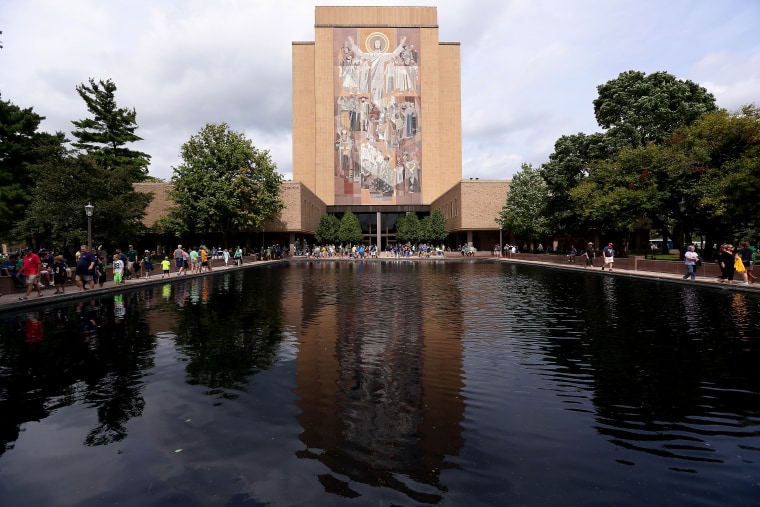In an encouraging sign for religious freedom backers -- and Obamacare detractors -- the nation’s highest court on Monday instructed a federal appeals court to reconsider its year-old decision that forced the University of Notre Dame to comply with the health care law’s contraception mandate.
The justices issued what’s known as a GVR, or “Grant, Vacate and Remand” order, which tossed out a 2014 decision from the 7th Circuit Court of Appeals that refused to honor the Roman Catholic university’s religious objection to providing contraceptive coverage. Under the order, the 7th Circuit has to revisit the case, but not necessarily reach a different conclusion.
"Notre Dame continues to challenge the Federal mandate as an infringement on our fundamental right to the free exercise of our Catholic faith."'
Monday’s action comes less than a year after the justices handed down a controversial ruling in the case of Burwell v. Hobby Lobby Stores, Inc. that found closely-held for-profit corporations could refuse to provide employees birth control coverage -- a requirement under the Affordable Care Act (popularly known as Obamacare) -- based on the owners’ sincerely-held religious objections to contraception. Since that ruling came after the 7th Circuit issued its decision regarding Notre Dame, the justices found reason for the appeals court to revisit the case.
Though the Affordable Care Act requires contraceptive coverage to be included in all health plans, it also provides a work-around for nonprofit institutions with a religious objection. Under the health care law’s accommodation, religious-affiliated non-profits like Notre Dame have to fill out a form stating their objection to contraception so that their insurer can provide the coverage directly. Notre Dame, however, along with plaintiffs in over 50 lawsuits, argued that the form was still a “substantial burden” on its religious beliefs, and should be prohibited under the Religious Freedom Restoration Act (RFRA.)
RELATED: White House issues new fix for contraceptive coverage
Every federal appeals court to address this question -- including the 3rd, 6th, 7th, and D.C. Circuits -- has found that the institutions’ religious beliefs were not violated by having to fill out the opt-out form. Two of those appeals courts reached that conclusion post-Hobby Lobby, and civil liberties advocates were confident the 7th Circuit would as well.
“Vacating and remanding is in no way a direction as to the result,” Louise Melling, deputy legal director at the ACLU, told msnbc. “I think that the other appeals court decisions are incredibly persuasive in terms of concluding that there is no impermissible burden on religious freedom by having to fill out a form.”
Nevertheless, Melling expressed disappointment with the Supreme Court. “We think the [7th Circuit’s] decision was correct, and there wouldn’t be a need to revisit,” she said.
In a statement, the University of Notre Dame had strong words for the Affordable Care Act, and said it was “gratified” by Monday’s order.
“The circuit court had earlier denied Notre Dame’s request for a temporary restraining order regarding a [Department of Health and Human Services] mandate which violated our religious beliefs by requiring Notre Dame’s participation in a regulatory scheme to provide abortion-inducing products, contraceptives, and sterilization,” the statement read. “Notre Dame continues to challenge the Federal mandate as an infringement on our fundamental right to the free exercise of our Catholic faith.”
The Supreme Court will issue another ruling on a crucial Obamacare case later this year.
